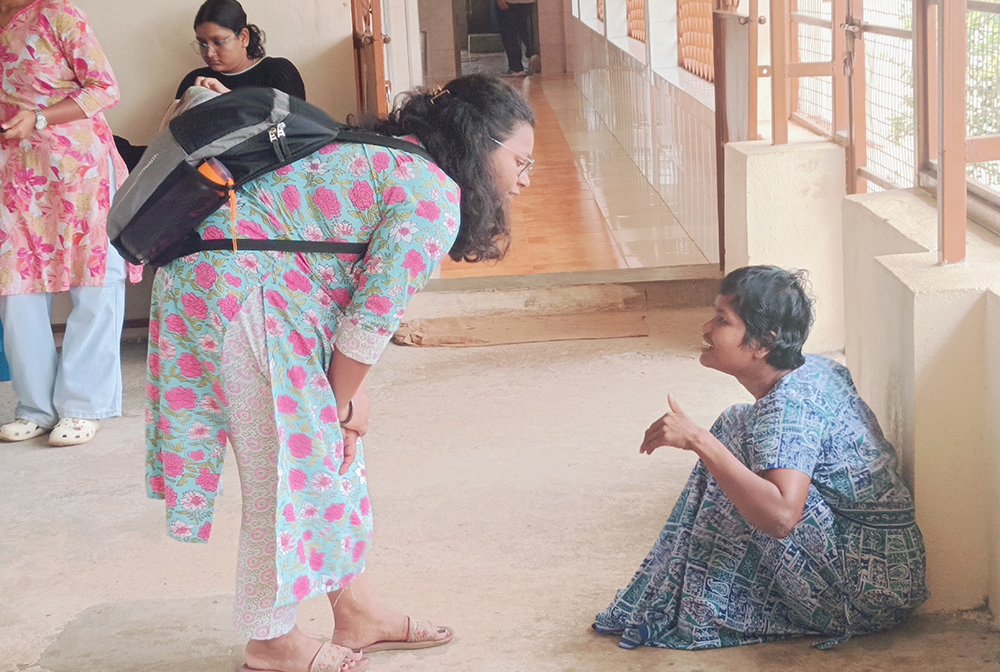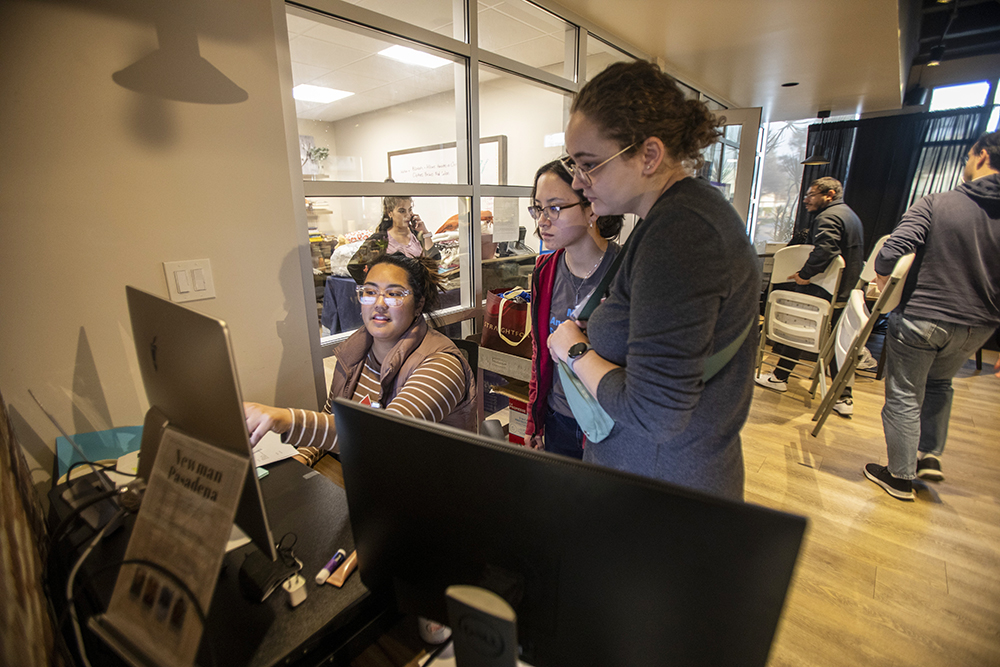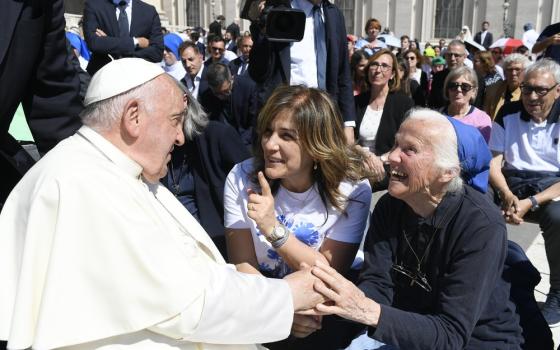
On a visit to a charity home, one of the volunteers strikes a conversation with one of the residents. (Tessy Jacob)
Gen Z continues to fascinate me. They are a generation of ambitious, adventurous and innovative individuals who turn to Google for every solution yet often magnify even the smallest issues. Like artificial intelligence, they are instantly ready with intellectual output but often struggle to approach chaotic situations with wisdom.
Did I sound like a typical adult from the Stone Age? At least, that's how Gen Z perceives anyone dispensing unsolicited advice! And yes, perhaps I just made a sweeping generalization about the younger generation — how crude of me.
One day, I was waiting for a public bus to a nearby town. It was a typical Indian countryside setting where poor villagers regularly rely on buses for commuting. A few young people boarded along with me. It was obvious public transport was not their usual mode of travel — they seemed clueless about how to hold the bars and maintain their balance. Though students of a prestigious university, they clearly lacked basic civility in this situation.
Advertisement
As they were still trying to figure out the best way to keep themselves safe on that bumpy ride, a voice arose with some clear instructions on how to conduct themselves on public transport. It was the conductor of the bus, a young man who was apparently the same age as the youngsters in the scene. His words amused the other adults on the bus, who were already reprimanding the youngsters in their minds. Although the young group tried to respond to him, he kept his cool and gave them the message in a manner they understood.
I was taken by his audacity, civic sense and responsible intervention. While giving the message loud and clear, he didn't intend to lower the image of those young people. He was charitable in his approach and, at the same time, firm and proactive. He made everyone's journey comfortable and imparted a lesson to those young ones for the future (if they heeded it).
We recently celebrated the feast of Epiphany — the feast of the revelation of Christ to the world. Scripture recounts the story of the visit of the Magi, who recognized the Divine incarnated in the least expected place. External circumstances did not blind their search for God's son, nor were they hesitant to worship him as the Messiah. The simplicity of the manger did not diminish the wonder they beheld. The sign that they had encountered the right person was that they were enlightened and returned to their own country "by another way" — they experienced a transformation.

Volunteer Krista Corbello, left, works with others to prepare for the "Eaton Fire Parish Response" at St. Philip the Apostle Church in Pasadena, Calif., Jan. 10, 2025. (OSV News/Ringo Chiu)
In an era driven by AI and technological advancements, we often fail to seek the wisdom present around us. The little device in our hands seems to hold more power over us than the living, breathing human beings nearby. We have underestimated the truth: human beings are inherently superior to technology.
Recently, a group of students volunteered to celebrate Christmas with children battling cancer in palliative care. One of the volunteers shared that spending time with those kids made her realize how ungrateful she had been about her own life. Sometimes, to truly appreciate the blessings in our lives, we need to witness the resilience and strength of those who have been deprived of them.
We often hear phrases like, "The world has changed," "Humanity is lost," "It's a fake world," and "Compassion is rare." Yet, my experience of approaching life in smaller, intentional moments has taught me that we live in a world full of opportunities to be more humane.
Take, for example, the case of a young conductor who imparted a lesson to a group of youngsters — one that neither their parents nor teachers had cared to teach them. Such instances remind us of the importance of opening our eyes to those who strive to restore humaneness in humanity.
Sometimes, to truly appreciate the blessings in our lives, we need to witness the resilience and strength of those who have been deprived of them.
God still walks on our streets daily. We blame our inability to notice him on the digital distractions. The virtual world has pulled us away from the real world. While we scaled back on our selfless service toward building society, it's still a miracle to see people genuinely think care about their neighbors. Being sensible and sensitive to other humans without expecting a return is one way we manifest God's love.
Drawing on this generosity, I've organized a mission to pool financial support for those in despair. Most people are happy to contribute, even with what little they have, and feel honored to contribute. They seize the opportunity to be part of something meaningful. Though time-consuming, serving as a mediator in this cause has brought me joy. I've realized that helping others express love for their neighbors is a mission in itself.
As old practices give way to new ones, we must find practical ways to bring goodness to the world. Whether it's offering timely advice, stepping into a gloomy situation to spread joy, smiling at a stranger, or holding a door open for someone else, there are countless ways to manifest God's love.
We are living through a transformational era. Every culture feels shifts in its socio-spiritual value systems. While we may fret over the changes brought by younger generations, it's our collective responsibility to act with love and care to foster positive development in society. By doing so, we become messengers of God, manifesting his love, mission and care to the world.








